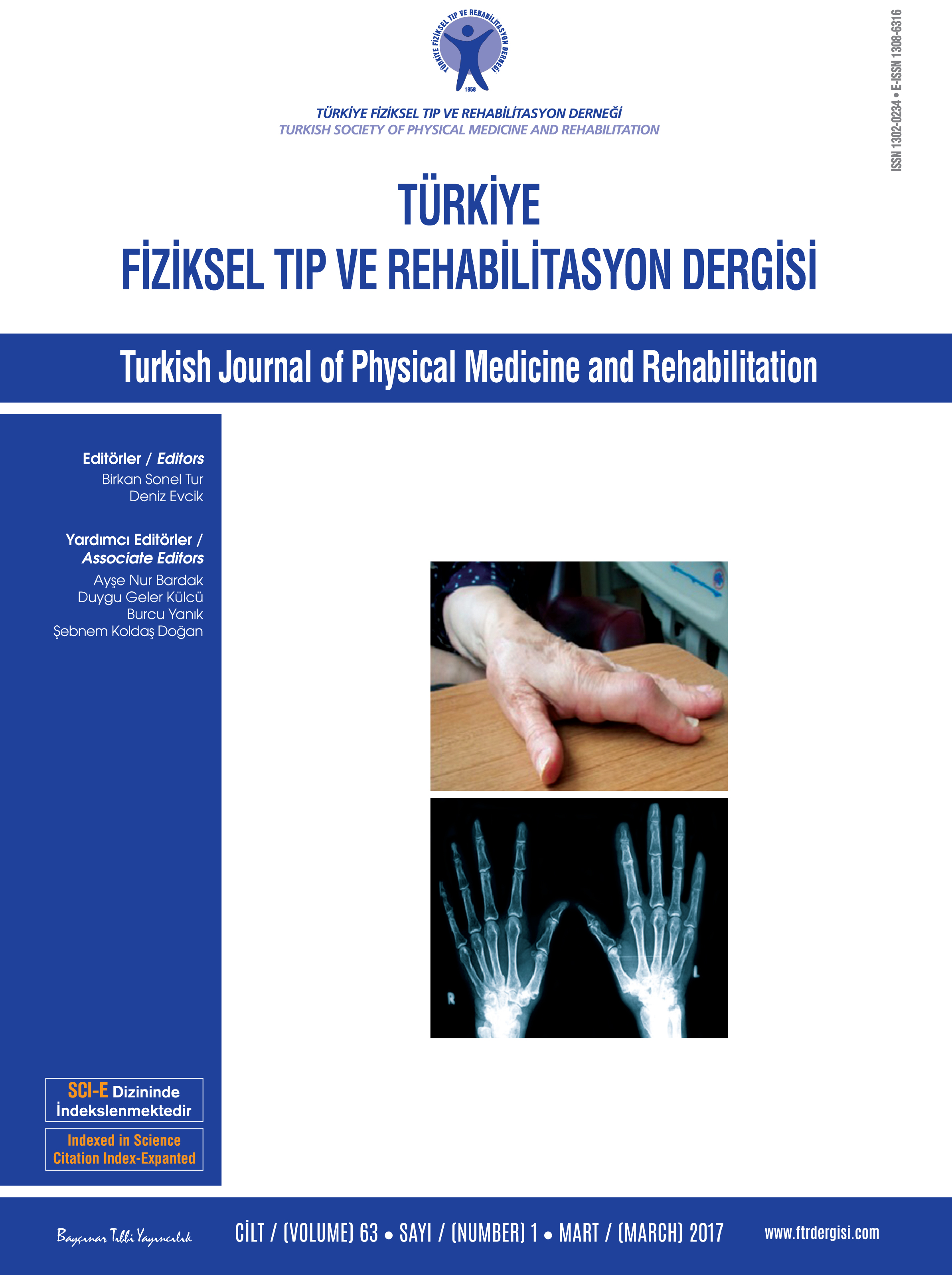Efficacy of subcutaneous lidocaine injections in patients with painful total knee arthroplasty
2 Department of Physical Medicine and Rehabilitation,Okmeydanı Training and Research Hospital, İstanbul, Turkey
3 Department of Orthopedics and Traumatology, İstanbul Kanuni Sultan Süleyman Training and Research Hospital, İstanbul, Turkey
4 Department of Biostatistics, İstanbul University İstanbul Faculty of Medicine, İstanbul, Turkey
5 Department of Physical Medicine and Rehabilitation, İstanbul University İstanbul Faculty of Medicine, İstanbul, Turkey DOI : 10.5606/tftrd.2017.97355 Objectives: This study aims to investigate the efficacy of injection of subcutaneous lidocaine in the management of pain that arises after total knee arthroplasty (TKA).
Patients and methods: Data of 56 patients who had postoperative pain related with TKA between December 2013 and April 2014 were retrospectively evaluated. All patients were given an exercise program and oral non-steroidal anti-inflammatory drugs. According to the treatment applied, the patients were divided into two groups: 33 patients given lidocaine injection to the painful knee sites by the same physiatrist constituted group 1, and the remaining 23 patients, who had been treated only with exercise program and oral non-steroidal antiinflammatory drugs, constituted group 2. Demographic data, Western Ontario and McMaster Universities Osteoarthritis Index (WOMAC) and visual analog scale (VAS) scores were recorded. These data were taken into consideration for the first and third month evaluations.
Results: Both of the groups had higher initial scores for VAS and WOMAC (WOMAC total score group 1: 29.9, group 2: 34.2; VAS total score group 1: 8.3, group 2: 8.0). There were significant decreases in WOMAC and VAS scores (p<0.001) in both groups when the values before and after the treatment were compared. The decrease in the scores of group 1 was significantly higher than that of group 2.
Conclusion: Subcutaneous lidocaine injections had short-term positive effects in patients who had postoperative pain after TKA. Future studies with larger sample may make the long-term effects of this intervention explicit.
Keywords : Pain; subcutaneous lidocaine; total knee arthroplasty

















